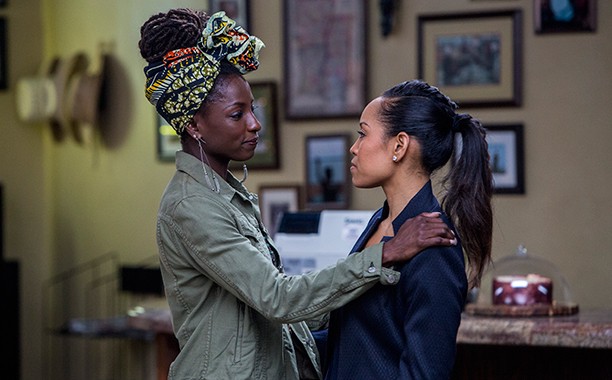“Queen Sugar’s” first season concluded on OWN Wednesday, November 30, and many viewers tuned in to see what the Bordelon siblings got up to. OWN announced that it had ordered a second season of the family drama back in August — prior to airing a single episode of the series— but the network is no doubt pleased that the Season 1 finale delivered solid numbers.
A press release announced that the episode ranked as the number one cable telecast for women Wednesday night, delivering 2.76 million total viewers. Viewership went up four percent in women aged 25–54, and marked an increase of seven percent in total viewers vs. the prior six-week average.
“The season finale ranked as the #1 most social show on Twitter and Facebook in all of cable among all dayparts (non-sports) for the day,” OWN revealed. “Quarter-to-date, ‘Queen Sugar’ is the #1 cable series for African-American women (12.23 rating) and the #1 new ad-supported cable series among W25–54 (2.44 rating).”
“Queen Sugar” had the highest-rated two-night premiere in OWN history when it kicked off in September.
Black girls and women accounted for just 15 percent of female characters on cable and streaming programs in the 2015–6 TV season. “Queen Sugar” is a welcome addition to the TV landscape for many reasons, including the fact that the series centers on a black family, which is unfortunately not something that we get to see all that often on the small screen (nor on the big screen). Season 1 of the series was directed exclusively by women, and the series’ creator, “Selma” director Ava DuVernay, has confirmed that Season 2 will be too.
The show “chronicles the lives and loves of the estranged Bordelon siblings in Saint Josephine, Louisiana: Nova (Rutina Wesley, ‘True Blood’), a world-wise journalist and activist; Charley (Dawn-Lyen Gardner, ‘Unforgettable’), the savvy wife and manager of a professional basketball star; and Ralph Angel (Kofi Siriboe, ‘Awkward’), a formerly incarcerated young father in search of redemption. After a family tragedy, the Bordelons must navigate the triumphs and struggles of their complicated lives in order to run an ailing sugarcane farm in the New South.”
“I don’t think this show could have picked a more perfect cultural moment to debut,” wrote Sara Stewart, Women and Hollywood’s TV columnist. “‘Queen Sugar’ is a diverse, sophisticated portrait of an African American family that never loses essential respect for its subjects — even when they’re doing less than perfect things (mostly, it must be said, this applies to the men in the family).” The series tackles activism, recidivism, prison treatment, and childhood gender issues.
“When I was given this series by @OWNTV, my first thought was ‘I hope I don’t embarrass myself.’ My second was ‘I want to really say something, make something real,’” DuVernay wrote on Instagram. “Thank you, @Oprah, for giving me the freedom to fly. You let me do all that I dreamed with this show. Thanks will never be enough. Beyond grateful to our stellar crew, writing team, directorial team and the dopest cast. We did it! Together! Love to each and all. And finally, thank you to every single person who watched and went on the journey with us. We made it for you and are honored that so many of you embraced our efforts.”
Monica Macer, former co-executive producer of “Nashville,” will serve as showrunner on “Queen Sugar’s” second season.
DuVernay’s latest film, “13th,” has been submitted to the Academy of Motion Picture Arts and Sciences for consideration for the 89th Academy Awards. The doc investigates the connection between slavery and mass incarceration in the U.S.






